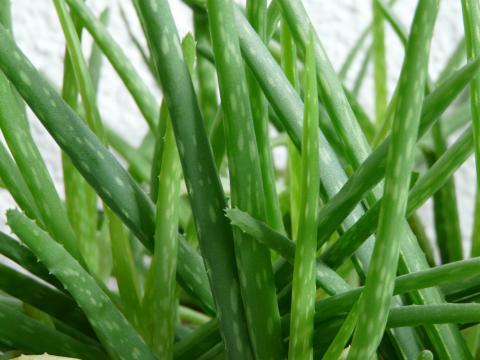What Should I Know About Growing Aloe at Home?

Aloes are some of the most popular succulent houseplants. Not only are they quite easy to grow, but many are quite visually striking, with rosettes of thick fleshy, leaves. There are a number of species and hybrids to choose from, but Aloe vera is by far the most popular. Being both attractive and useful, Aloe vera is worth growing. Known as burn plant, the gel from the leaves is often used to treat minor burns and skin irritations. If you don’t foresee using your aloe as a healing remedy and only have limited space, then you might choose from a variety of colorful, compact, aloe hybrids with names such as ‘Pink Blush’, ‘Christmas Carol’, and ‘Bright Star’.
Caring For Aloe
Aloe is considered by many to be one of the most rugged houseplants. As long as it is watered properly and given a bright, sunny place to grow, it is hard to kill. A south facing windowsill is perfect for growing aloe, but an unobstructed east or west facing window will also work. Overwatering is one of the few things that will consistently kill aloe, so be sure to let the soil dry out between watering sessions, and never allow the plant sit in a saucer of standing water. Repotting with a well-drained potting mix with added sand (such as a cactus or succulent mix) is a helpful way to guard against overwatering, provided that plants are grown in containers which have at least one drainage hole.
Aloe is sensitive to cold temperatures and shouldn’t be grown in a room that dips below 50°F. Plants that are placed near drafty windows may show signs of stress in the form of discolored foliage or damaged leaf tips.
Propogating Your Aloe
Don’t be surprised if your aloe starts producing lots of new babies around its base. One of the main ways aloe reproduces is by growing these “pups.” If you’re so inclined, you can divide the pups from the mother plant and repot them to share with friends.
Aloe is also capable of flowering if it is given enough bright light. Tall flowering spikes give rise to multiple colorful tubular blossoms.
Got questions? The Ask UNH Extension Infoline offers practical help finding answers for your home, yard, and garden questions. Call toll free at 1-877-398-4769, Monday to Friday, 9 a.m. to 2 p.m., or e-mail us at answers@unh.edu.
Do you love learning about stuff like this?
SUBSCRIBE TO Granite State Gardening newsletter
Got questions? The UNH Extension Yard and Garden Infoline offers practical help finding answers for your yard and garden questions.
Call toll free at 1-877-398-4769, Monday to Friday, 9 a.m. to 2 p.m., or fill out webform.
